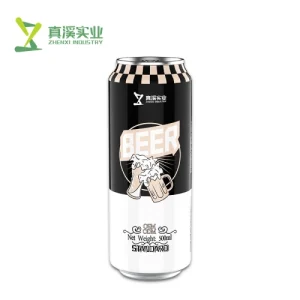Beverage producers, both established and new to the game are responding with agility as these mega-trends manifestore by adhering closer than ever to several key trends. These types of moroccan oil have been shown to be increased environmental protection, high tech refinement and new marketing approach.
No lingering about it - [health and wellness] is the hottest space in trends. The global market for health and wellness food is set to hit $1 trillion in 2027, with a compound annual growth rate (CAGR) of just over 4.2%. Beverage providers are developing new products aiming to offer natural ingredient, lower sugar with functional benefits. The popularity of kombucha and other probiotic beverages has skyrocketed -the kombucha market is expected to soar upwards $6.2 billion by 2026 for example
Another important trend is sustainability. Introduction to the new EcoFriendly beverage consumersThe mantra of sustainable living is rapidly becoming a norm amongst ecoconscious customers and natural nonalcoholic beverages suppliers alike are rising up to embrace it now more than ever. This means using green packaging, decreasing carbon footprints and responsibly sourcing ingredients. In the case of Coca-Cola, by 2030 it hopes that a bottle or can will be collected and recycled for each one sold. Coca-Cola's "World Without Waste" program underscored the broader movement towards sustainability in packaging.
The face of the beverage industry is no doubt going to change with technological innovations. TC: You seem very interested in the potential use of blockchain technology for establishing supply chain transparency and REA (reciprocal economic activities). Blockchain secures and makes unchangeable all transactions that will be traceaility from farm to table. In 2020, beverage firms worked with IBM and its Food Trust blockchain to bolster traceability and overcome consumer distrust. This technology allows users to follow their drinks from the place of origin until it is delivered thus guaranteeing its quality and authenticity.

Another trend is customization and personalization. A Deloitte survey revealed 36% of consumers would be interested in, or happy to consider taking out personalized offers\Services. Data analytics and beverage suppliers are being used to personalize beverages. As an illustration, Coca-Cola's Freestyle vending machines let customers mix their own custom drink blend choosing from over 100 different beverages, thereby transforming customer journey with personalization.
Another major trend is the growing popularity of plant-based beverages. With a compound annual growth rate of 12.0%, the global plant-based beverage market is estimated to be valued at USD 33 billion in by test recur march4. Manufacturers are using new ranges of drink-oyster and almond, oat milk -whilst not going subsequent pinnacle. This is an evolution accelerated by growing consumer interest in dairy-free foods, vegan fare.
New e-commerce and direct-to-consumer (DTC) sales channels for beverages are evolving with the redefined ways in which they can now be marketed and sold. Online shopping was already on the rise before Covid-19 with e-commerce beverage sales up 42% in 2020 and this trend has accelerated during global pandemic. Beverage suppliers are setting up strong online platforms and leveraging digital marketing strategies to connect with consumers directly. Fast-moving goods giant PepsiCo has revealed the launch of its DTC web sites, PantryShop. com and Snacks. com, exemplifies this trend.
Obviously functional beverages, those with health benefits in addition to basic nutrition are very much en-vogue. No lessthan an enigma, the global functional beverages market is poised to command a heftyvaluetouching beyond US $ 208 billion by end of forecast period (2019 -2024), atastonishing CAGR if ~8. Designed for both physical health and mental performance, products such as energy drinks, sports drink or nutraceutical beverages attract a part of the growing population that cares about their diet.
Well the marketing strategies are changing and moving to utilize social media/influencer partnerships. Soft drink suppliers now finding themselves more often teaming up with influencers to help get their product out there. As per Business Insider, the influencer marketing industry is projected to reach around $15 billion by 2022. Using technology in this way allows brands to target niche audiences and hone true relationships with customers.
Famous entrepreneur Howard Schultz said, "Innovation is not about solving known problems; it's about discovering unknown issues." Innovation is the name of the game for beverage suppliers responding to new consumer needs and potential market changes in volatile times.
This illustrates how Beverage supplier are adjusting to respond to a rapidly changing market. Their emphasis on health, sustainability, tech use and breakthrough marketing ensures they will change with consumers to remain in the game.
